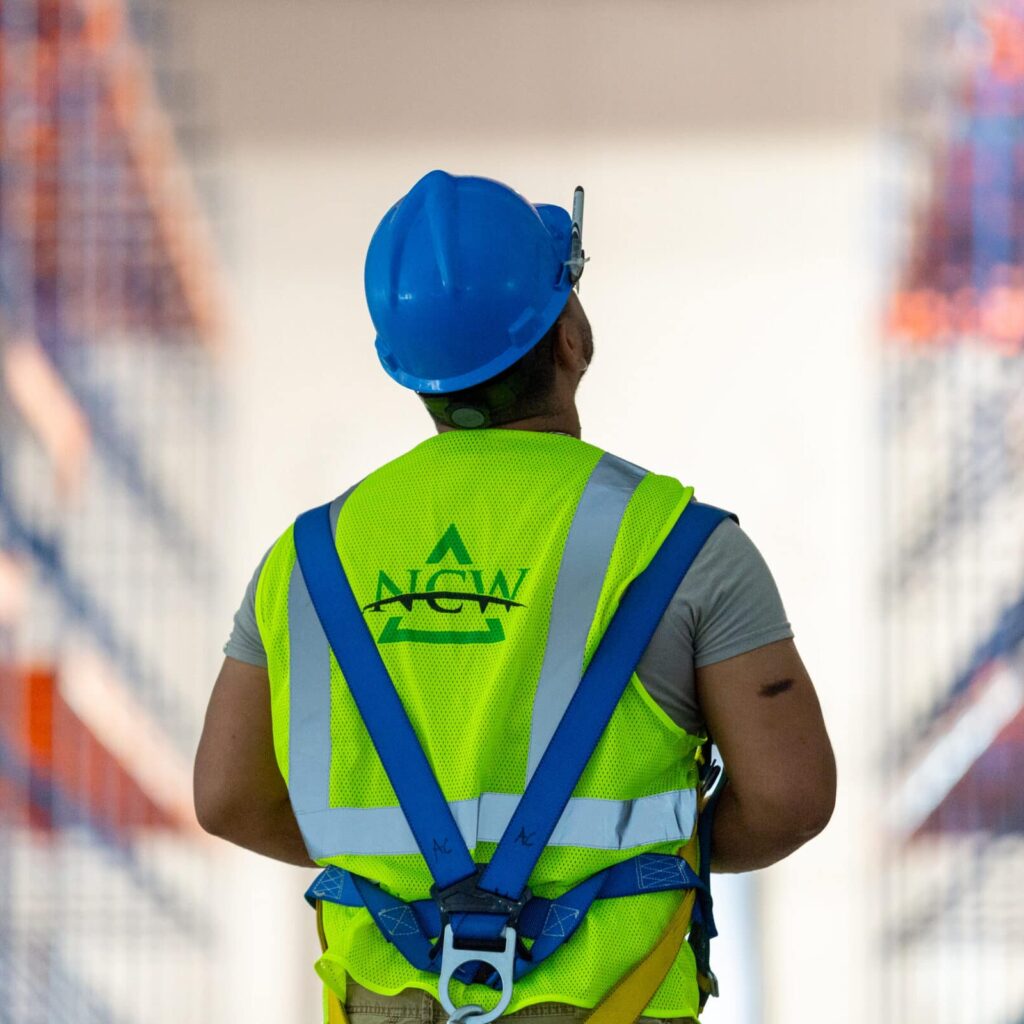Industrial Automation Jobs
Unlock your potential with a career in industrial automation. We know the job search can be a daunting process. That’s why NCW’s recruiting team gathered all of the ins and outs of the interview process here in this downloadable PDF to help you through it.
THE NCW TEAM IS HERE TO HELP

Get the edge you need to ace your next interview directly from the source.
Download Our Free Interview Packet!
What’s Inside?
Discover our comprehensive interview guide packed with valuable tips and insights to help you navigate every stage of the interview process with confidence. From dressing for success to mastering phone and video interviews, negotiating job offers/salary, and handling resignations, our guide covers it all. Download our interview guide and unlock the secrets to interview success in one convenient package.
SNEAK PEEK
Industrial Automation Jobs
Are you looking for industrial automation jobs? Well, there are many great career opportunities in one of the fastest-growing industries in society today. The global industrial automation market is projected to grow from USD 205.86 billion in 2022 to USD 395.09 billion by 2029, exhibiting a compound annual growth rate (CAGR) of 9.8% during the forecast period. The fact that the industry growth rate is compounding so quickly means there will be a high demand for careers in the industry. You may ask, are there automation jobs near me? There are industrial automation jobs all over the country, with a facility hiring close to you.
Industrial Automation uses control systems: robotics, and computers to automate processes versus human labor. While some individuals may think this could take jobs away from the industry, quite the opposite is happening. Automation has opened up more jobs for engineers, technicians, managers, sales representatives, and customer service representatives. Robots are usually designed to carry out just one task; therefore, pairing robots with human workers is the most effective. This dynamic creates an even balance of speed & strength that robots can provide with humans’ creativity and intuition. As automation and AI technology continue to develop, automation will surge across all sectors of our society.
Table of Contents
Industrial Automation Companies
Automation in recent years has become more prevalent and has allowed many companies to remain competitive in one of the largest industries in the world. The world has yet to see a perfect automation process. Depending on the manufacturing process, your business must decide whether automation is a good fit. It may be a good fit if you have the capital to invest in an automation system. Implementing automation slowly and combining artificial intelligence with human intelligence is the optimal way to integrate automation into manufacturing. There is no perfect process for implementing robotic/AI technology but implementing them slowly helps control variable costs.
Since the industrial automation space is one of the fastest-growing industries in the world, more and more companies are entering the room. There are tons of industrial automation companies in society today – with companies adopting the technology everywhere. Some of the biggest domestic and global manufacturers in the United States are adopting the technology, including industrial automation companies in California and industrial automation companies in Texas. As more companies adopt automation processes, one main concern is the extinction of production labor jobs. This should be a concern, but the argument has a flip side. For example, BMW’s Spartanburg factory features robot assistants to help fit doors with sound and moisture insulation, a painstaking task for human workers. This transition led to a 50% productivity increase without job losses, as employees previously filling these machine operator roles were promoted from machine operators to robot programmers.
While entry-level positions may be limited, there will be more opportunities for the growth of specialized roles: automation technicians, electricians, mechanical plumbers, field systems engineers, and automation engineers. These are just a few positions that have experienced massive demand in recent years. The career outlook for these fields is excellent, showing potential for high pay rates.
Industrial Automation Engineer Job Description
Due to industry demands, the opportunities for industrial automation will continue to multiply. The World Economic Forum estimates that by 2025, 85 million jobs may be displaced by a shift in the division of labor between humans and machines, while 97 million new roles may emerge in adaptation to this new division between humans, machines, and algorithms. There are now classes at two-year institutions and four-year universities that allow you to get the proper training and certifications for a prosperous career in automation. In some cases, you do not even need an associate’s or bachelor’s degree if you have the required experience and technical skills. If you specialize in a specific coded language, you could set yourself apart from other candidates.
Industrial Automation Engineer
Automation Application Engineer
Automation Engineer Salary
There are tons of careers in industrial automation that may be right for you. See the average salaries below for more information on automation engineers’ salaries.
All of the roles mentioned above are great career paths in industrial automation. These careers will continue to bloom and grow in the coming years due to the industry’s growth rate. Companies today are prioritizing safe automation in their manufacturing processes. Jumping into a career like this is a great way to capitalize on this trend. Technology is not slowing down anytime, and robotics will continue to grow in manufacturing. Research Dive’s newly published report predicts that the global collaborative robot (cobot) market will grow at a stunning CAGR of 41.2% by 2026. This trend indicates a shift in the manufacturing industry with businesses looking to enhance safety, save time, boost quality production, reduce monitoring, and collectively reduce fixed costs associated with an unautomated process.
Depending on your location, you may ask whether there are industrial automation jobs near me? Well, the good news is that there are. There are industrial automation jobs near California and industrial automation jobs near Texas and all over the United States. The average industrial automation jobs salary near California is $95,748/year, and the average industrial automation jobs salary near Texas is $89,950/year. While your salary may differ depending on your location, there is also an average industrial automation salary below.
Depending on your location, you may ask whether there are industrial automation jobs near me? Well, the good news is that there are. There are industrial automation jobs near California and industrial automation jobs near Texas and all over the United States. The average industrial automation jobs salary near California is $95,748/year, and the average industrial automation jobs salary near Texas is $89,950/year. While your salary may differ depending on your location, there is also an average industrial automation salary below.


We’re Hiring!
We Think You Have What It Takes To Be A Forklift Operator… Do You?
As an integral piece of several industries, forklift operators are needed by top general contractors nationwide. NCW partners with top ENR contractors to help fill their open roles. Thinking about making the next jump in your career? Talk to the NCW team today!
Industrial Automation Engineer Job Description
Many companies have begun re-shoring manufacturing facilities back to North America from other countries due to supply-chain issues, increases in demand, and raw material shortages. As AI technology continues to become more prevalent in the coming years, there will be no shortage of professional roles at manufacturing facilities. As stated in a recent article by Reuters, North America laid out more than $2 billion for almost 40,000 robots in 2021 to help them contend with record demand and a pandemic-fueled labor shortage. If companies start re-shoring manufacturing facilities back to the United States, this could increase the need for specialized professionals to fill these roles.
An example of one of these positions would be an industrial automation specialist with an excellent career outlook. The average industrial automation specialist salary is roughly $80,407/year. Another one of the most popular positions is industrial automation engineer, which also has an excellent career outlook. You can find the job description for the role below.
Industrial Automation Engineer Job Description (ZipRecruiter):
As an industrial automation engineer, your responsibilities include troubleshooting systems and equipment and maintaining software, robotics, and machinery in a manufacturing facility. You also set up, install, and monitor new equipment, program and adjust process controls, and purchase and maintain stock levels of all necessary electronic equipment. You stay within company standards and accept industry practices when preparing project scopes, design concepts, bills of material, specifications, and cost estimates for production. Other duties include working directly with clients, preparing project correspondence as needed, and developing industrial software programs based on client product requirements.
You have all the information to get started, so what’s next? Well, a good next step is to connect with our team today. Our team has a variety of open opportunities in industrial automation that might be your next dream job.
Find Your Dream Job
About NCW

Stay In Touch
Jumpstart Your Career With NCW
Are you on the hunt for your next career move? Look no further than NCW, the staffing and professional recruitment specialists who do things differently. Since our founding in 2000, our primary focus has been on you – the talented individuals behind each role.
At NCW, we believe in forming meaningful, long-term partnerships with top companies and organizations. We go beyond just matching job requirements and resumes; we want to understand your “whys” and motivations. We’re committed to unraveling the unique qualities and aspirations that drive you, to ensure we find the perfect fit for your skills and ambitions.
Discover the difference of working with NCW. Partner with us and unlock a world of career possibilities. Your next exciting opportunity awaits.
Recommended for you:
Build Your Team Today
Are you in need of recruiting services? Our team has 20+ years of recruiting experience working to match your company with top notch candidates. Reach out to our team for more information.
